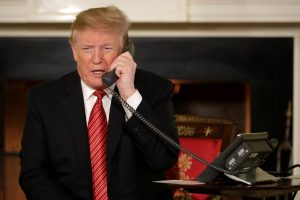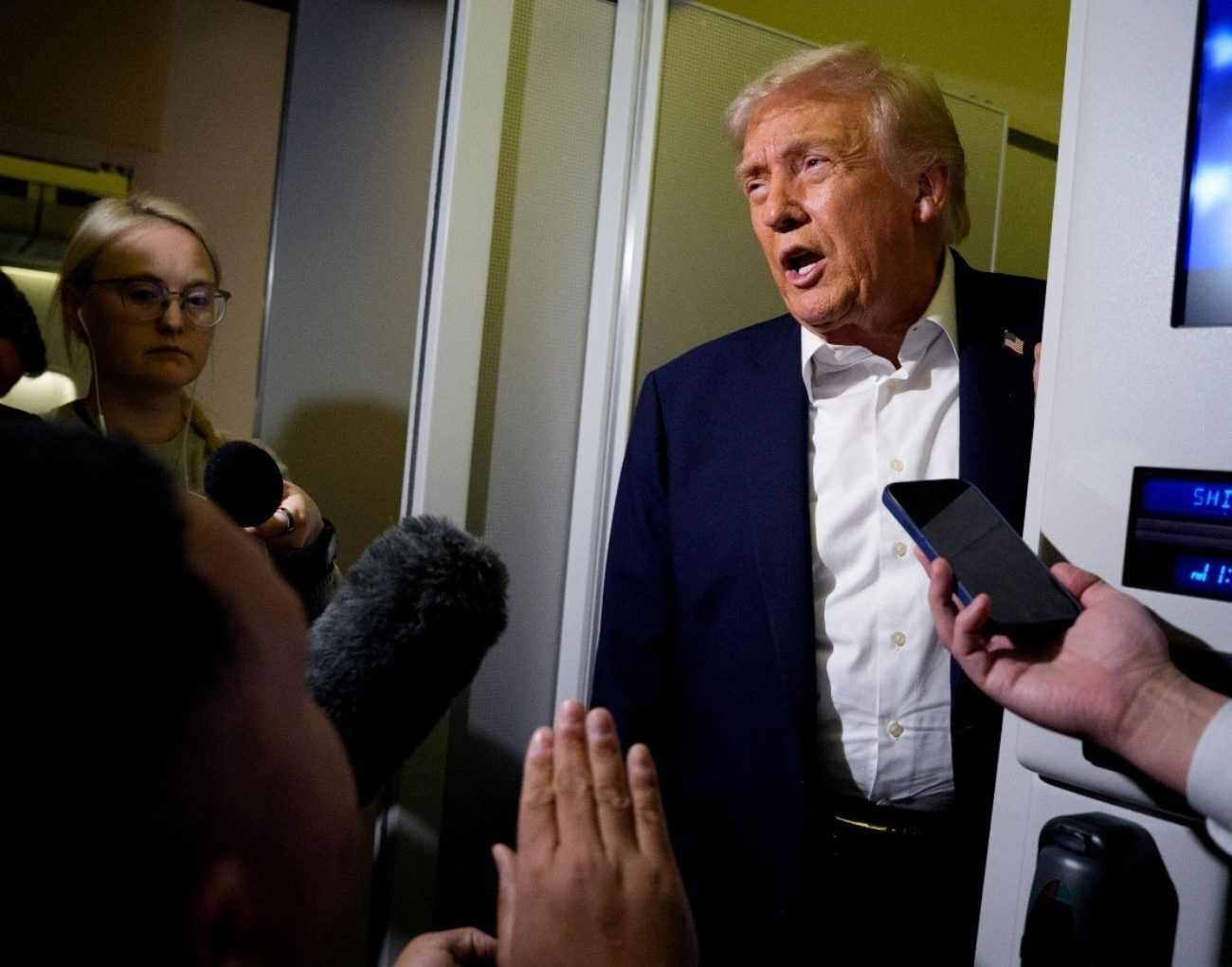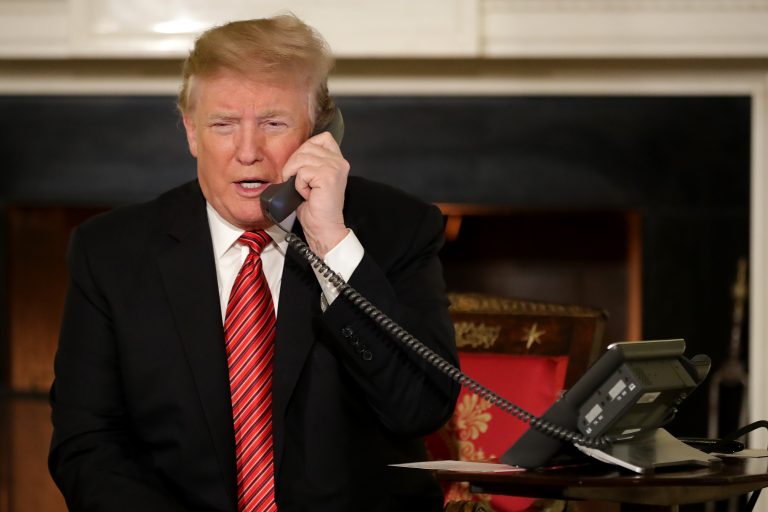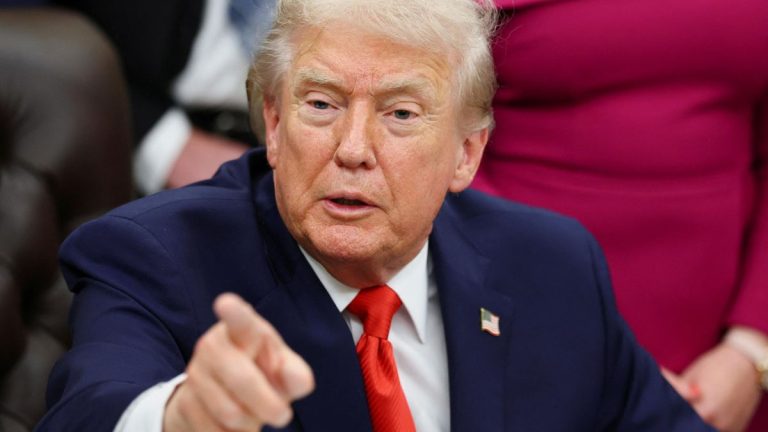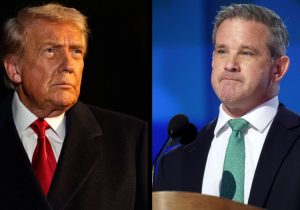Ontario Premier Steps Back Following Washington Backlash
Ontario Premier Doug Ford announced Friday that his government will suspend its short-lived anti-tariff television campaign in the United States, a move aimed at cooling diplomatic tensions and reopening stalled trade discussions with Washington.
The decision follows an abrupt halt to trade negotiations by President Donald Trump, who reportedly took issue with the tone and timing of the ads. The campaign, launched earlier this week, featured clips of former U.S. President Ronald Reagan warning about the dangers of protectionist tariffs — a message Ford said was meant to spark “an honest economic conversation.”
Instead, it set off a political storm.
Ford: “We’ve Achieved Our Goal”
In a written statement issued to reporters, Ford said that while the campaign had achieved “massive visibility” and “opened the dialogue,” he was pulling the ads to create a more constructive atmosphere for upcoming negotiations.
“Our intention was always to initiate a conversation about the kind of economy North Americans want to build and the impact of tariffs on workers and businesses,” Ford said. “We’ve achieved our goal, having reached U.S. audiences at the highest levels.”
The ads — which ran in key U.S. markets including Detroit, Buffalo, and Cleveland — are set to continue through the weekend before being paused. They are expected to air during the first two games of the World Series, ensuring they reach millions of American viewers before being shelved.
According to The Canadian Press, the spots will go dark early next week, pending new guidance from the Prime Minister’s Office in Ottawa.
Trump Calls the Ad “Crooked”
The White House response was swift.
Speaking to reporters before departing for Asia, President Trump described the Ontario ad as “crooked” and “possibly AI-generated,” hinting that his administration viewed the campaign as a provocation during sensitive trade discussions.
“They could have pulled it tonight,” Trump said as he boarded Marine One. “Well, that’s dirty play — but I can play dirtier than they can, you know.”
The ad’s release came just hours before Trump’s previously scheduled trade team meeting with U.S. officials to review tariff exemptions on steel, aluminum, and autos — key sectors affected by U.S.-Canada trade tensions.
Following the broadcast, Trump reportedly ordered his administration to suspend all trade talks with Canada until “further notice.”
Reagan Library Pushes Back
The 60-second ad spot drew attention not only for its message, but for its use of archival footage of former President Ronald Reagan, shown warning that “tariffs and trade barriers only make us weaker.”
Officials at the Reagan Presidential Library said Friday that the Ontario government had not sought permission to use Reagan’s likeness or speech excerpts.
“The Reagan Foundation had no prior knowledge of this ad, and it does not represent President Reagan’s views in full context,” a spokesperson told reporters. “We were not consulted or asked to approve its use.”
The statement added that the footage appeared to take Reagan “out of historical context,” something that critics say may have amplified the backlash from Washington.
Carney Steps In Amid Diplomatic Fallout
Ford’s decision to pull the ad came after a phone conversation with Prime Minister Mark Carney, who is currently traveling in Asia for a series of economic summits.
Carney, who is expected to meet President Trump later in the week, has been working to reopen stalled negotiations over a revised trade framework between Canada and the U.S.
Speaking to reporters at Ottawa International Airport before boarding his government aircraft, Carney said Canada remains “committed to constructive dialogue” but acknowledged that “U.S. trade policy has fundamentally changed.”
“Our officials have been working on detailed, sector-specific negotiations — steel, aluminum, and energy — and a lot of progress has been made,” Carney said. “We stand ready to pick up on that progress when the Americans are ready to have those discussions.”
Canadian Leaders Divided Over Ford’s Move
Ford’s decision triggered mixed reactions across Canada’s political landscape.
Alberta Premier Danielle Smith praised Ford’s restraint, calling it a “mature and measured response” that prioritizes economic diplomacy over political theater.
“I am pleased to see Ontario’s ad campaign is being suspended,” Smith said. “Diplomatic engagement — not public confrontation — is the best path toward resolving tariff disputes and restoring fair trade.”
But Manitoba Premier Wab Kinew disagreed, arguing that Ford’s reversal undermines Canada’s leverage.
“Trump’s reaction proves the ad worked,” Kinew said in a video posted to social media. “If you throw a rock at a lake and you don’t hear a splash, you probably missed. So to my good friend Doug Ford — keep the ads on TV. They’re effective, and this country is behind you.”
The contrasting responses highlight the deep divisions among provincial leaders about how best to respond to Washington’s trade policies.
Inside the Ad That Sparked It All
The now-paused ad featured clips of Reagan speaking during the 1980s against protectionism, combined with footage of modern manufacturing plants and Canadian steelworkers.
A narrator’s voice warned that “tariffs don’t just hurt the other side — they hurt everyone.”
The ad ended with a simple line: “Trade should build bridges, not barriers.”
While Ford’s team described it as a message of “economic cooperation,” White House officials viewed it as a direct challenge to Trump’s trade agenda, which includes new tariffs on Canadian steel, lumber, and dairy imports.
According to several U.S. and Canadian media outlets, the Reagan footage was obtained from public archives, though the Library Foundation’s statement suggests that formal clearance may have been required due to licensing concerns.
A Rapidly Escalating Dispute
The diplomatic fallout unfolded quickly.
Within hours of the ad’s U.S. debut during Game 1 of the World Series, senior White House aides reportedly contacted the Canadian Embassy in Washington to express their “disappointment.”
By Friday morning, Trump had instructed trade officials to pause all ongoing negotiations related to Canada’s pending tariff exemptions.
The suspension blindsided Canadian officials who had believed that recent progress — particularly in the energy and automotive sectors — was paving the way for a broader agreement.
In Ottawa, Ford’s office was said to be “caught off guard” by the intensity of the American response, according to an aide speaking anonymously to The Globe and Mail.
Reactions From Ottawa and Beyond
In his remarks Friday, Ford emphasized that Ontario’s relationship with the U.S. remains “vital and enduring,” noting that the U.S. is Ontario’s largest trading partner, with more than $400 billion in cross-border trade annually.
“I will always stand up for Ontario workers, but I will also do what’s necessary to keep our relationship with our American friends strong,” Ford said.
Business leaders appeared divided on the premier’s approach.
Some praised his willingness to push back on tariffs, while others warned that even symbolic actions could jeopardize the fragile recovery in Canada-U.S. trade following years of uncertainty.
“We understand the frustration,” said one Ontario manufacturing executive. “But trade negotiations are delicate. One wrong move can reset months of progress.”
Trump’s Past Tensions With Canadian Leaders
The incident marks another chapter in the complex relationship between President Trump and Canadian leadership.
Trump’s public criticisms of Prime Minister Mark Carney and former Prime Minister Justin Trudeau during previous trade disputes have been well documented.
Analysts say Ford’s ad campaign — while framed as provincial messaging — may have been perceived in Washington as an extension of Ottawa’s trade strategy, blurring the line between local advocacy and national policy.
“From the U.S. perspective, there’s no difference between a message from Ontario and a message from Canada,” said one senior trade consultant familiar with the talks. “It all lands on the same desk.”
Looking Ahead: Can Diplomacy Recover?
With Ford’s decision to suspend the campaign, both sides appear to be looking for a way to reset the tone.
Canadian officials hope that removing the ad from circulation will allow negotiations to quietly resume in the coming weeks, possibly after Trump and Carney meet in person during the upcoming ASEAN Economic Summit in Singapore.
For now, Ford says his focus is on “getting trade flowing again” and ensuring “Ontario’s workers aren’t caught in the middle.”
As the ad fades from the airwaves, the question remains: will the gesture be enough to bring Washington back to the table?

James Jenkins is a celebrated Pulitzer Prize-winning author whose work has reshaped the way readers think about social justice and human rights in America. Raised in Atlanta, Georgia, James grew up in a community that instilled in him both resilience and a strong sense of responsibility toward others. After studying political science and creative writing at Howard University, he worked as a journalist covering civil rights issues before dedicating himself fully to fiction. His novels are known for their sharp, empathetic portraits of marginalized communities and for weaving personal stories with broader political realities. Jenkins’s breakout novel, Shadows of Freedom, won national acclaim for its unflinching look at systemic inequality, while his more recent works explore themes of identity, resilience, and the fight for dignity in the face of oppression. Beyond his novels, James is an active public speaker, lecturing at universities and participating in nonprofit initiatives that support literacy and community empowerment. He believes that storytelling is a way to preserve history and inspire change. When not writing, James enjoys jazz music, mentoring young writers, and traveling with his family to explore cultures and stories around the world.
